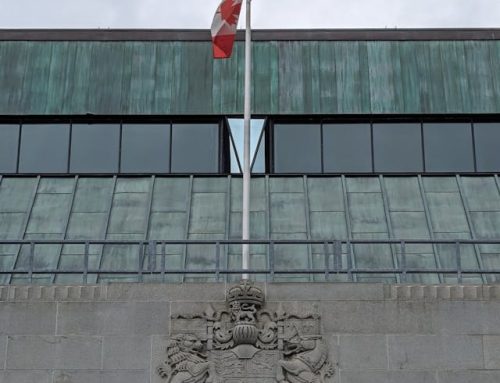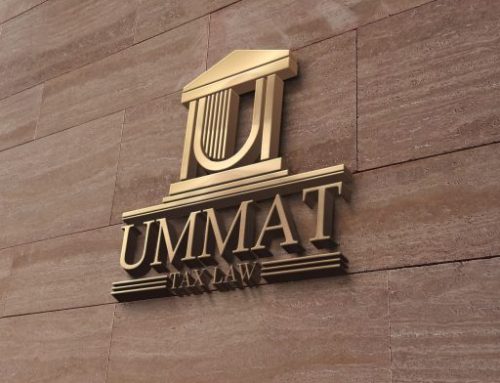Federal Court of Appeal Rules Crown Must Honour Settlement Agreement
Canada v. CBS Canada Holdings Co. 2020 FCA 4
Summary
CBS entered into a settlement with the Crown in respect of the reallocation of non-capital losses in 2007. Five weeks after signing the agreement but before the reassessments were issued, the Crown tried to resile from the settlement agreement. CBS brought a motion in the Tax Court of Canada (“TCC”) for an order enforcing the settlement agreement. The TCC ruled in favour of CBS. The Crown appealed to the Federal Court of Appeal (“FCA”) and CBS prevailed again.
Background
In 2002, Viacom Canada was formed following the amalgamation of several companies. In 2006, Viacom’s name was changed to CBC Canada Holdings Co. On March 8, 2007, CBS was involved in an amalgamation with several other related corporations, resulting in the two taxation year-ends of March 7, 2007 and December 31, 2007. In its income tax returns for each of those years, CBS deducted a non-capital loss in computing income. CBS claimed these were incurred by its predecessors in prior years and available for carry-forward in the amounts of $25,751,078 and $7,557,852. The Minister reassessed the non-capital losses available to CBS for carry-forward as $893,260 for the March 2007 TY and $382,594 for the December 2007 TY with the remaining non-capital loss amounts being denied on the basis such amounts were less than reported by CBS. In 2013, CBS appealed the reassessments relating to the quantum of non-capital losses available to be carried forward.
During the litigation, CBS offered to settle the appeal, and included figures relating to alleged additional non-capital losses. The Crown discussed these numbers at length with the CRA and eventually agreed that the figures were correct. Minutes of Settlement were circulated, revised, and eventually signed by both CBS and the Crown.
Several weeks later, the Crown advised counsel for CBS that contrary to its prior understanding, there were no non-capital losses available for carry forward. Many procedural steps ensued, including case management conferences and motions.
CBS filed a motion at the TCC, and the only real issue was whether the Minutes entered into and signed by both parties constituted a valid settlement agreement.
Tax Court Decision
At the TCC, CBS’ position was that the respondent’s acceptance of the Minutes on January 7, 2015, created a valid and legally-binding contract with CBS and was enforceable against the Minister.
CBS submitted the non-capital losses in the amount of $24,366,301 was available for carry-forward and flowed from an existing pool of non-capital losses in the amount of $296,385,732 from years prior to 2007 that had been reassessed by the Minister based on CBS’ filings.
The Crown’s position was that the Minister erred in agreeing to the non-capital loss figures contained in the settlement agreement and could not, therefore, reassess as the agreement would be factually and legally indefensible.
The TCC used the Apotex[1] test to determine whether a settlement agreement existed. The conditions are:
- Parties must have a mutual intention to create legal relations
- Consideration must flow between the parties
- Terms of the agreement must be sufficiently certain
- There must be a matching offer and acceptance on all essential terms
The TCC answered all in the affirmative. The TCC further found the Crown’s affidavit to be incomplete and was therefore not convinced that the Minutes of Settlement contained inaccurate non-capital loss figures. CBS’s motion to enforce the settlement was granted.
Decision & Analysis
The main issue to be decided by the FCA was whether the TCC erred by granting the motion, thereby allowing CBS’ appeal in accordance with the Minutes of Settlement. There were two additional (and relatively minor) issues, one raised by the Court and one raised by the Crown in submissions.
Position of Parties
The Crown alleged that the TCC erred by failing to consider the Crown’s evidence from the appeals officer regarding the available loss carry forwards and that the TCC also made two legal errors:
First, the Tax Court failed to consider that, pursuant to subsection 111(3) of the ITA, if non-capital losses are used in a taxation year they may no longer be claimed in a later year. Second, the Tax Court failed to consider that “[t]he Minister is not permitted to change a taxpayer’s taxable income [for an earlier year] without reassessing […].” No authority was provided for this argument. As far as I know, these legal arguments were made for the first time in this Court.[2]
CBS argued that the TCC was entitled to rely on the explicit terms of the settlement agreement to conclude that the additional $24 million of loss carry forwards were “grounded in objective reality”. CBS also argued that a) the Crown should not be able to allege errors of law at this late stage and b) that there were no such errors in any event because the ITA does not prohibit the reallocation of loss carry forwards.
The FCA found that the TCC committed no error in allowing CBS motion.
Woods J. found that the Crown’s reliance on the Galway[3] decision was misplaced. In Galway, the parties were trying to uphold a settlement agreement that was not in accordance with the law. In contrast, this case involved the Crown trying to unilaterally withdraw from a validly constituted settlement agreement. The CBS agreement was also not a ‘compromise’ settlement considered in Galway. The CBS agreement was one where the law applied to the facts. In other words, it was not a horse-trading settlement. It was legally sound.
The FCA found that that parties should be bound by the agreements that they make and that there was no reason to depart from that principle in this appeal.
As suggested by the Tax Court in 1390758 Ontario Corp. v. R., 2010 TCC 572, 2010 D.T.C. 1385, this would be very unfair to CBS: “[b]oth sides of a dispute are entitled to know that if they invest the time and effort required to negotiate a settlement, then their agreement will bind both parties” (at para. 37)The Crown entered into the settlement agreement believing that it was in its best interest to do so. It should be required to live up to its bargain. In my view, it would not be appropriate for the Court to wade into the merits of the agreement.[4]
Takeaway
This decision should be kept in mind in any situation where a party attempts to resile from a duly executed settlement, whether it be the Crown (as it was in this case) or the taxpayer. Justice Woods is crystal clear that parties should be bound by the agreements they make. From a practical perspective, this, of course, requires all parties to pay close attention to the terms of any settlement prior to execution.
Call the lawyers of Ummat Tax Law to handle your tax litigation matters. Keep in mind that our lawyers have settled hundreds of appeals prior to trial.
[1] Apotex Inc. v Allergan Inc., 2016 FCA 155
[2] Canada v. CBS Canada Holdings Co. 2020 FCA 4, at para. 22.
[3] Galway v. Minister of National Revenue, [1974] 1 F.C. 600 at 602, 1974 D.T.C. 6355 (C.A.)
[4] Canada v. CBS Canada Holdings Co. 2020 FCA 4, at paras. 35-36.




